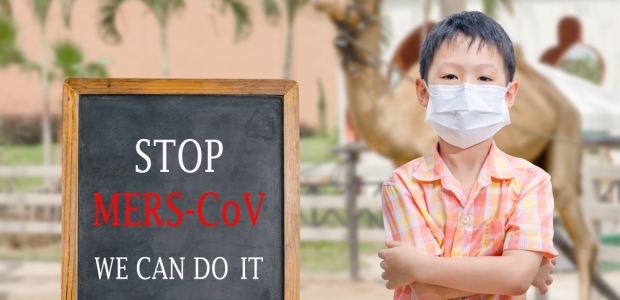
Assessing the Threat of MERS
WHO's Emergency Committee held its ninth meeting on June 16, by teleconference, in response to the outbreak in the Republic of Korea.
Middle East respiratory syndrome coronavirus (MERS-CoV), which World Health Organization Director-General Margaret Chan warned in May 2013 represented "a threat to the entire world," has confirmed that assessment, according to an article published online on June 17 by JAMA. Its authors wrote that, as of June 12, 2015, WHO had been notified of 1,289 people with laboratory-confirmed infections in 25 countries, and at least 455 of them had died. Most of the cases have been diagnosed in Saudi Arabia.
The ninth meeting of WHO's Emergency Committee on June 16 was summoned in response to an outbreak in the Republic of Korea, however, and China reported a MERS case in May 2015, co-authors Lawrence O. Gostin and Dr. Daniel Lucey, M.D., MPH, reported.
Their article describes MERS as a viral respiratory illness novel to humans and a zoonotic disease, "with dromedary camels the likely animal reservoir. Transmission risk factors include respiratory exposure to camel secretions, drinking raw camel milk, or eating undercooked camel meat. Studies report increased risk in individuals with occupational contact with camels," it states, adding that, while it is transmissible person-to-person, sustained community transmission has not been observed. Health care settings pose the highest risk, they wrote.
Gostin works at the O'Neill Institute for National and Global Health Law at the Georgetown University Law Center in Washington, D.C., and Lucey works at the Georgetown University School of Medicine there.
Their article discusses strategies used thus far to prevent the spread of MERS, including isolation, quarantines, travel restrictions, and school closings. They note that a "critical lesson from SARS, Ebola, and now MERS is that health settings can amplify transmission risks," adding that the "ongoing outbreak in the Republic of Korea is an important reminder that MERS requires constant vigilance and can be brought under control with effective public health strategies."
WHO reported that the committee's ninth meeting included an assessment that the main factors contributing to the spread of MERS in the Republic of Korea include lack of awareness among health care workers and the general public about MERS, suboptimal infection prevention and control measures in hospitals, close and prolonged contact of infected MERS patients in crowded emergency rooms and multi-bed rooms in hospitals, and the custom of visitors or family members staying with infected patients in hospital rooms, facilitating the secondary spread of infections among contacts.